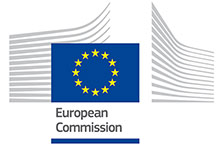Results of evaluation on ACP-EU Cotonou Partnership Agreement announced
 Brussels, 20 July 2016/ EC: The European Commission announced the results of its evaluation of the Cotonou Partnership Agreement (CPA), and report on the good progress being made towards the main objectives of the partnership between the EU and the African, Caribbean and Pacific (ACP) States.
Brussels, 20 July 2016/ EC: The European Commission announced the results of its evaluation of the Cotonou Partnership Agreement (CPA), and report on the good progress being made towards the main objectives of the partnership between the EU and the African, Caribbean and Pacific (ACP) States.
Announcing the results of the evaluation, EU Commissioner for International Cooperation and Development Neven Mimica said: “The findings of this evaluation are an important step forward in terms of putting in place our future relationship with ACP partners. It allows us to build on existing successes and improve in areas where progress can still be made. With one single objective in mind: bringing more prosperity to all”.
A press release by the European Commission stated that the agreement is making a considerable contribution to the eradication of poverty, and increased integration of the African, Caribbean and Pacific (ACP) countries into the world economy, and is enhancing the capacity of regional organisations to intervene in conflict management, according to the evaluation.
The current agreement with the EU and its ACP partners – the Cotonou Agreement – runs from 2000 until 2020. It has a huge geographic scope – 78 ACP countries adhere to it – and is wide ranging, covering many policy areas. The evaluation, carried out by the European Commission services and the EEAS, will be used to draw lessons from the past and provide inputs to the reflection process on how to govern relations with ACP countries after 2020.
Evaluating the principle pillars
The evaluation by the European Commission points to clear examples of significant progress, as well as a range of issues where improvements could be made:
Political dialogue is a relatively young but important feature in the partnership, which has fostered better mutual understanding of views. The CPA has also inspired the African Peace Facility (set up to support peace and security on the African continent). However, in some partner countries there is a need for more political will to change or improve the human rights situation, according to the evaluation.
Trade policies have influenced the increase in trade flows to and from ACP countries. The increase in World Trade Organisation (WTO) membership accompanied with the groups' increasing role in international trade negotiations, and the conclusion of several Economic Partnership Agreements between the EU and ACP countries has supported the integration of ACP States into the world economy. Results on increasing diversification and reducing dependence on a limited number of agricultural products and minerals still need to be improved, according to the evaluation.
Development cooperation has made a significant contribution to the eradication of poverty, improved food security and provided more equitable access to basic services for the most vulnerable communities, and has been key in raising awareness on environment and climate issues. However, significant challenges remain, notably in conflict zones, where support has not been geared sufficiently towards tackling the root causes of conflict, but to mitigating the consequences. Equally, there has been little impact on income distribution, while population growth has not received sufficient attention, according to the evaluation.
The results of the evaluation will be used for discussions with EU Member States on future relations with ACP countries at the next informal meeting of EU Development Ministers in September 2016.
Background
The European Union’s relationship with the African, Caribbean and Pacific States has been governed by a number of agreements, dating back to the Lomé convention signed in 1975, aiming to support the ACP States’ efforts to move towards self-sustained development.
The Cotonou Partnership Agreement was signed in 2000 for a 20-year period and will expire on 29 February 2020. It is a wide-ranging agreement with underlying values and principles that covers many policy areas under three pillars: (i) the political dimension, (ii) economic and trade cooperation, and (iii) development cooperation.
For more information
The evaluation, as well as further information, can be downloaded here.
